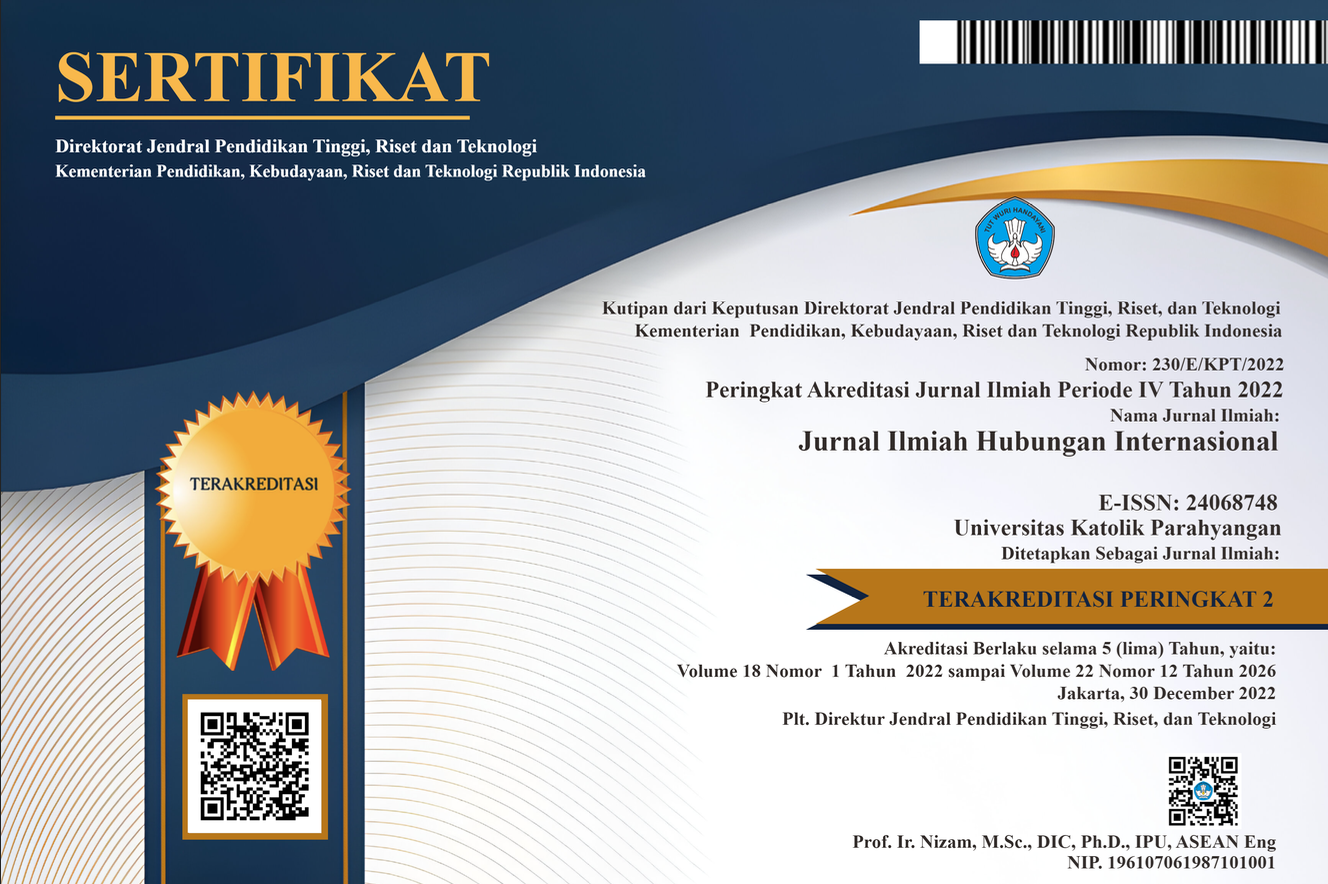Phenomenon of Diaspora in The Preservation of National Culture on Example of Russian Diaspora in Bolivia
DOI:
https://doi.org/10.26593/jihi.v14i1.2808.51-59Keywords:
Globalization, diaspora, national culture, Russian diaspora, cultural globalizationAbstract
Globalization covers the most diverse spheres of human life, including social, where the processes of migration and globalization of culture take on special significance. Cultures arise and develop, interacting with each other. And the first field of this interaction is the diaspora. Diaspora is the environment where culture is directly developed and enriched. The development of diasporas is carried out by spreading the culture, values and traditions of their people, but at the same time integrating into society with a different culture, which implies the acquisition of new socially and spiritually significant qualities. The psychological reason for the emergence of the diaspora is that people far from their homeland begin to understand, appreciate and even more love their native culture. The development of the modern world is characterized, as we know, by globalization. Can the phenomenon of the diaspora in modern social life be associated with it? No, because the diaspora is directly connected with culture, while globalization is opposed to culture. Globalization is aimed at unification, ignoring the problem of cultural identity. Globalization involves the erasure of cultural features, the loss of cultural, ethnic, religious differences. But at the same time, globalization contributes to the growth of population migration, which leads to an increase in the number of diasporas abroad. The rapid growth of immigrant communities and their institutionalization forced to talk about "the diasporaization of the world" as one of the scenarios for the development of mankind. One way or another, this process deepens and takes more and more new forms, and the role of diasporas and their influence are intensified.
References
Trends in total migrant stock: The 2005 revision //http://esa.un.org/migration
Kozlov VI. Diaspora // Code of ethnographic concepts and terms. M., 1986. P. 26
Sultanov Sh.M. Regional vectors of foreign policy of the Republic of Tajikistan. Author's abstract. Diss. Ph.D. M .: RAGS, 2006. P. 19
Arutyunov SA, Kozlov S.Ya. Diaspora: hidden threat or additional resource. Independent newspaper - 2005.- 23 November
Arutyunov SA: "There are more people living in two countries and two countries in the world". http://noev-kovcheg.1gb.ru/article.asp?n=96&a=38
Dokuchaeva A. Problems of the Diaspora. http://www.zatulin.ru/institute/sbornik/046/13.shtml
Grigoryan E. Contours of the New Diaspora Philosophy. http://www.perspectivy.info/oykumena/vector/kontury_novoiy_diasporalnoiy_filosofii__2009-3- 9-29-18.htm
Brubaker R. The diaspora// Ethnic and racial studies.- NY, 2005.- Vol. 28, No. 1.-P.1-19
Vishnevsky AG, USSR Disintegration: Ethnic Migrations and the Diaspora Problem. http://ons.gfns.net/2000 /3 / 10.htm
Dyatlov V. Migrations, migrants, "new diasporas": a factor of stability and conflict in the region. http://www.archipelag.ru/authors/dyatlov/?library=2634
Kim AS Ethnopolitical study of modern diasporas (conflictological aspect): St. Petersburg, 2009. http://vak.ed.gov.ru/common/img/uploaded/files/vak/announcements/politich/2009/06-04/KimAS.rtf
G. Sheffer, Diaspora in World Politics, Diaspora, M., 2003. - No. 1, pp. 166-167
Schaeffer G. Diaspora in World Politics // Diaspora - M., 2003. - No. 1. - page 170
Malakhov V. Cultural differences and political boundaries in the era of global migration. Moscow: New Literature Review, 2014. 232 pp. C.22-25, 27-29
Russian diaspora, Wikipedia. https://en.wikipedia.org/wiki/Russian_diaspora
Demographics. Federal State Statistics Service (Rosstat). http://www.gks.ru/wps/wcm/connect/rosstat_main/rosstat/ru/statistics/population/demography/#
The state program on rendering assistance to voluntary resettlement to the Russian Federation of compatriots living abroad. Decree of the President of Russia of June 22, 2006 No. 637 http://government.ru/programs/471/events/
Giorgi Zotov, 2009. Taborche - Santa Cruz. Newspaper "Arguments and Facts" http://messeru.livejournal.com/2267.html
ibid
Alexander Naumov. "Old Believer" Bolivia. http://ricolor.org/rz/latin_amerika/bl/b_r/1/
Press Service of the Moscow Patriarchate, 2008. In Bolivia, the first Orthodox church was consecrated. http://www.taday.ru/text/95734.html
Yuri Maksimov, 2009. Оrthodoxy in Bolivia. http://www.pravoslavie.ru/29095.html
Alexander Naumov. Russian World - "Old Believer" in Bolivia. The Union newspaper. http://www.sgline.org/cat/5/2714
Downloads
Published
How to Cite
Issue
Section
License
This journal uses Creative Commons license (CC BY). We allow readers to read, download, copy, distribute, print, search, or link to the full texts of its articles and allow readers to use them for any other lawful purpose. The author must be aware that the article copyrights will be fully transferred to Jurnal Ilmiah Hubungan Internasional only if the article is accepted to be published in the journal through signing of the Copyrights Transfer Agreement. Authors are allowed to resend their manuscript to another journal or intentionally withdraw the manuscript only if both parties (JIHI and Authors) have agreed on the related issue. Once the manuscript has been published, authors are allowed to use their published article under Jurnal Ilmiah Hubungan Internasional copyrights.








